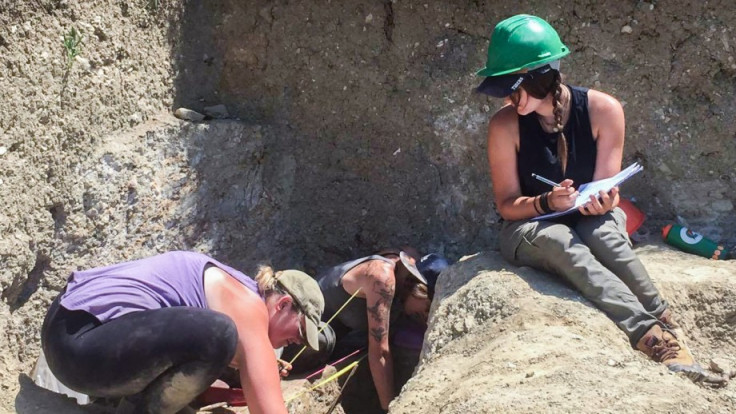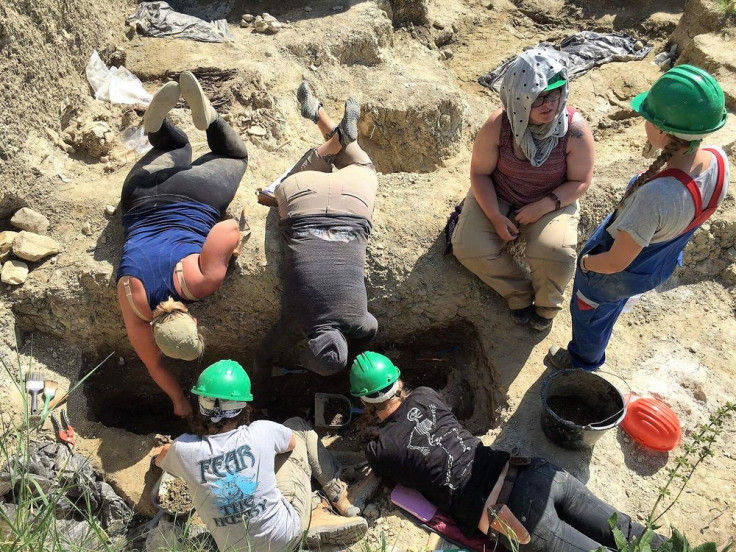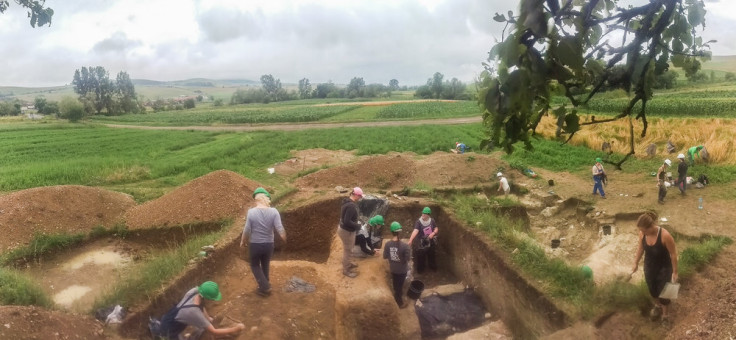Transylvania: Mystery body unearthed buried face down holding five huge coins
The high-status man was buried more than 100 years ago in an unusually careless way.

A body of a young man buried in the 19th Century in Transylvania, Romania, has been unearthed in a puzzling position and holding five much larger than average coins in its hands. Archaeologists believe that he is one of the Székely people of Eastern Europe and the discovery will help piece together the community's first official written history.
The grave, one of 49 excavated at the burial site, held an unusual problem for the archaeologists. On the one hand, the body was buried with five very large coins in its hands. There were also brass and ceramic buttons buried with the body in unusually large numbers. The man was young – probably between 27 and 35 – and had no obvious signs of disease.
"He was very healthy," said Coco James, a masters student at the Australian National University who excavated the site, in a statement. "Most likely it was a wealthy individual with good standing in his community."
But despite his good social standing, the body had been buried in a haphazard way – a sign of disrespect or violence on the body in many cultures.
"He was buried almost upside down, rolled onto his side and tilting downwards," James said.
The team speculate that the awkward burial position could have been an accident.
"In the end we decided the most likely situation is that during the burial they lost their grip on the coffin and it rolled and fell in upside down, they looked down and said, 'You know what, no one's ever going to know'," said James.
The man was thought to be of the Székely people, who migrated from Hungary to Romania beginning in the 11th or 12th Century, establishing lands and traditions of the Székelyföld region of Transylvania.

"There are no written histories for the Székely people of this area, just oral histories. Only now is there a project to develop a written history, so being able to do this work and provide physical evidence is incredibly important," said James.
"It gives the people that are going to write these histories lot of fuel to use."

© Copyright IBTimes 2025. All rights reserved.






















